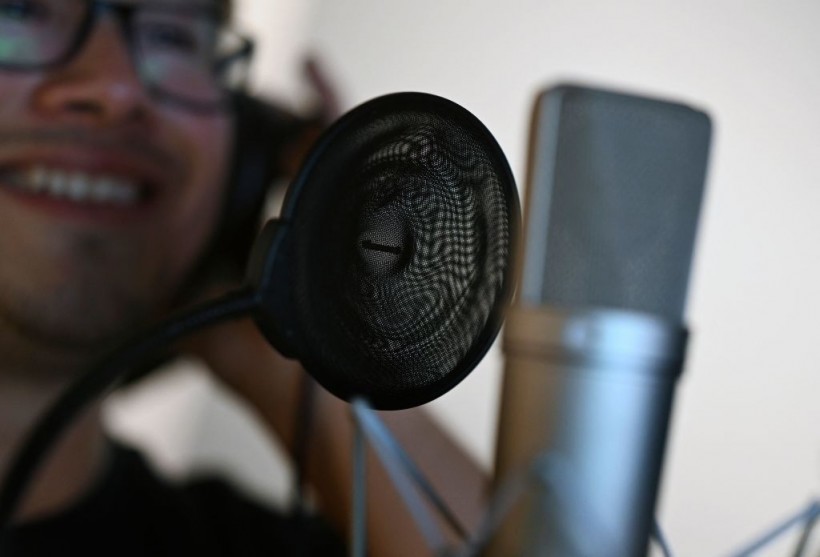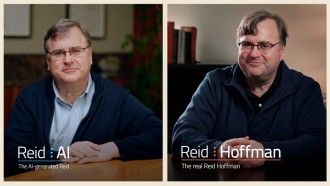Video game development is an ever-evolving industry, and artificial intelligence is now playing a role in this progress.
While AI has long been used in various aspects of gaming, its recent expansion into voice acting has sparked both excitement and apprehension in the industry.

Mexican male voice actor Armando Guerrero speaks during a dubbing session for a television series, inside the recording studio in Mexico City on May 19, 2023. Commercial voiceover artists, voice actors, and audiobook and videogame narrators fear that their talent will be displaced by synthetic voices and that they will lose their livelihood. Worse, they may be unknowingly feeding a device that will take away control of their voices. (Photo by ALFREDO ESTRELLA / AFP)
Video Game Studios and Voice Cloning AI
Traditionally, video game studios have relied on professional actors to bring characters to life. However, as games become more expansive and ambitious, the demand for diverse voices has skyrocketed, prompting some studios to consider AI-generated voice clones as a solution.
One such studio is Replica Studios, which has struck a groundbreaking deal with the Screen Actors Guild-American Federation of Television and Radio Artists (SAG-AFTRA).
This agreement allows licensed digital replicas of actors' voices to be used in video games, providing a new avenue for talent while ensuring ethical standards and compensation.
AI Voice Clones and Voice Actors
For actors like Andy Magee, whose vocal talents have graced numerous virtual worlds, the rise of AI presents both opportunities and challenges.
Speaking with ABC News, Magee, who specializes in voicing characters with a British Isles flair, described AI as an unexpected but welcome addition to his career. However, industry veterans remain concerned about the potential impact on job security.
Meanwhile, renowned voice actor Jennifer Hale has been a vocal critic of AI technology's encroachment into the field. In an interview with Gizmodo, she expressed fears that AI clones could replace human actors without their consent, likening it to "theft." Hale's sentiments reflect broader anxieties within the community about the future of their livelihoods.
Despite these concerns, some actors see the potential benefits of AI integration. Zeke Alton, known for his roles in blockbuster franchises like Call of Duty, acknowledges the practicality of AI tools in scaling up game development. However, he stresses the importance of preserving human artistry in the process.
Read Also: Apple Arcade Introduces Spatial Games on Apple Vision Pro: New Era in Gaming Begins
The General Debate on AI
The debate over AI's role in gaming extends beyond voice acting. Dubbing companies in Latin America are utilizing AI to train for tasks traditionally performed by humans, raising questions about job displacement across various industries. From literature to education, the impact of AI on human labor is a topic of ongoing discussion.
While AI offers exciting possibilities for efficiency and creativity, it also poses challenges to established norms and practices. As seen with the SAG-AFRA agreement, it seems like the key lies in fostering collaboration and dialogue among all parties involved.
Ultimately, whether AI clone technology is viewed as an innovation or a threat to job security may depend on how it is implemented and regulated.
Stay posted here at Tech Times.
Related Article: This AI Voice-Changer Offers 20 Lifelike Characters for 40 Million Users






